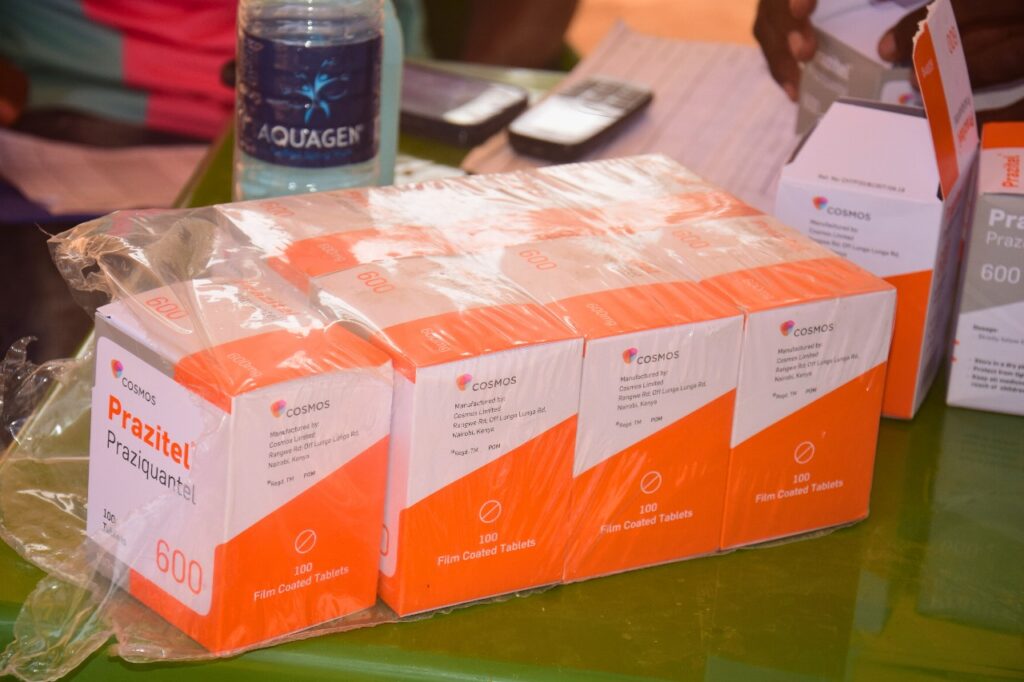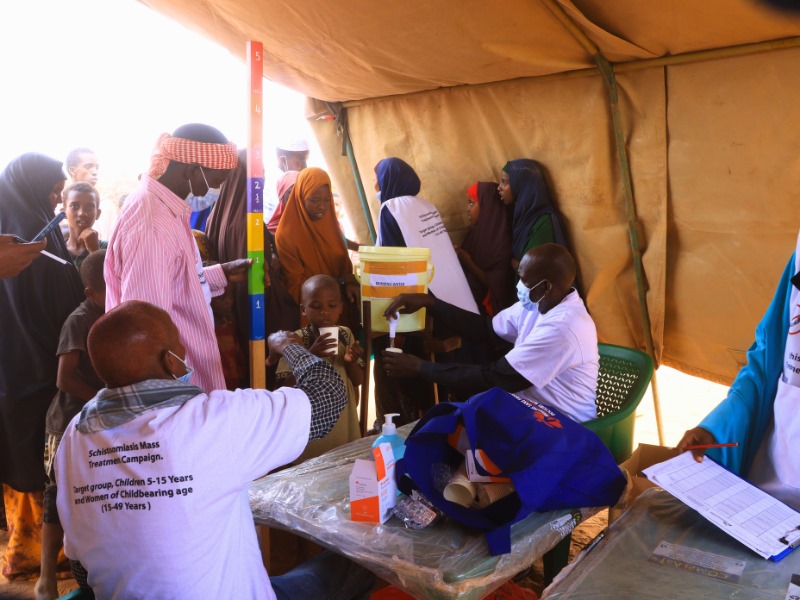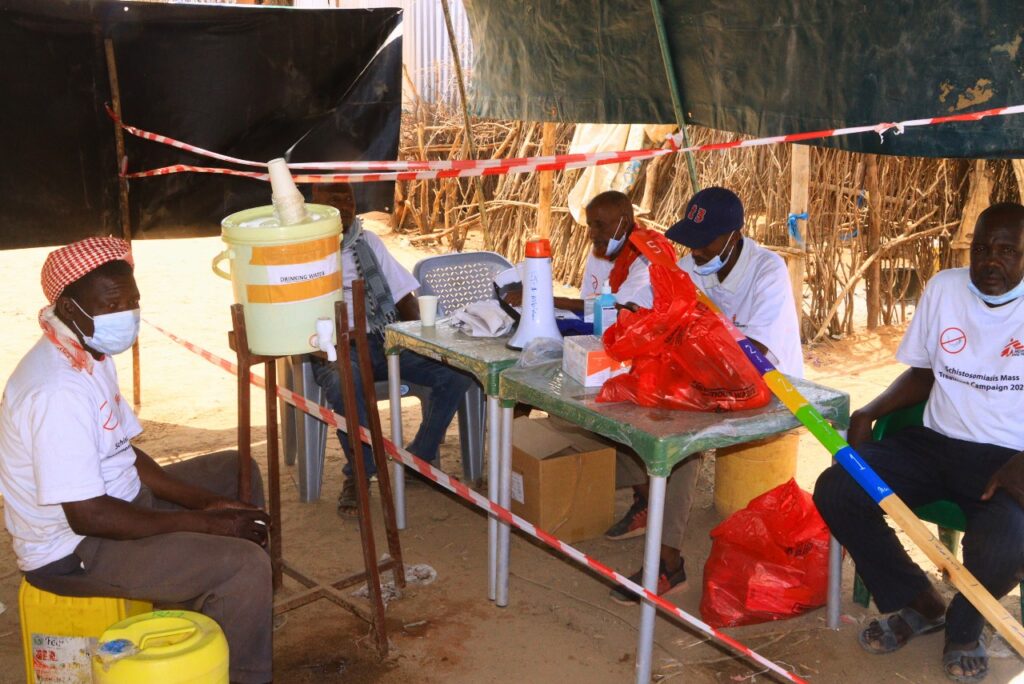By Bunmi Yekini

In a major effort to curb the spread of schistosomiasis in the Dagahaley refugee camp, part of the Dadaab complex, Médecins Sans Frontières (MSF) has administered treatment to approximately 70,000 people in a Mass Drug Administration (MDA) campaign conducted in February 2025.
The initiative aimed to tackle the high prevalence of the neglected tropical disease (NTD), which is caused by parasitic worms living in freshwater and can lead to severe health complications, including anemia, malnutrition, and organ damage if left untreated.
The urgency of the intervention was underscored by MSF’s medical findings in August 2024, when nearly one in ten urine samples from patients with urogenital symptoms tested positive for schistosomiasis. Alarmingly, 88.8% of individuals who exhibited blood in their urine were diagnosed with the disease.
Read Also:Thousands Flee Goma Camps as MSF Races to Provide Urgent Medical Aid
Read Also: MSF Suspends Medical Aid in Zamzam Camp Amid Escalating Violence in Darfur
“This campaign marked a milestone for the refugees in Dagahaley, addressing a critical public health need and ensuring that even the most marginalized populations receive the treatment they urgently require,” said Kelly Khalaba, MSF Deputy Medical Coordinator in Kenya.

Through the MDA campaign, MSF distributed Praziquantel, a safe and effective antiparasitic medication, to at-risk populations, including children aged 5 to 15 and women of childbearing age. While this effort significantly reduced the disease burden, MSF warned that treatment alone is insufficient to eliminate schistosomiasis.
“The high number of schistosomiasis cases is a direct consequence of inadequate access to clean water, sanitation, and hygiene services in the camp,” Khalaba noted. “Without significant improvements in water and sanitation infrastructure, this disease will again affect thousands of vulnerable people in the future.”

Flooding, worsened by climate change, has exacerbated the problem by creating stagnant water that serves as a breeding ground for parasites. Despite the severity of the outbreak, refugee populations remain excluded from Kenya’s national schistosomiasis elimination program, making them particularly vulnerable.
“It is impossible to control, prevent, and eventually eradicate neglected tropical diseases like schistosomiasis if people in need don’t have access to timely, quality treatment and basic preventive measures,” Khalaba emphasized.
The recently concluded campaign was the first of its kind in Dagahaley, marking a significant public health intervention in a region where MSF has been providing medical care for over 30 years. However, humanitarian groups stress that sustained efforts, including better water and sanitation infrastructure, are necessary to prevent future outbreaks.
